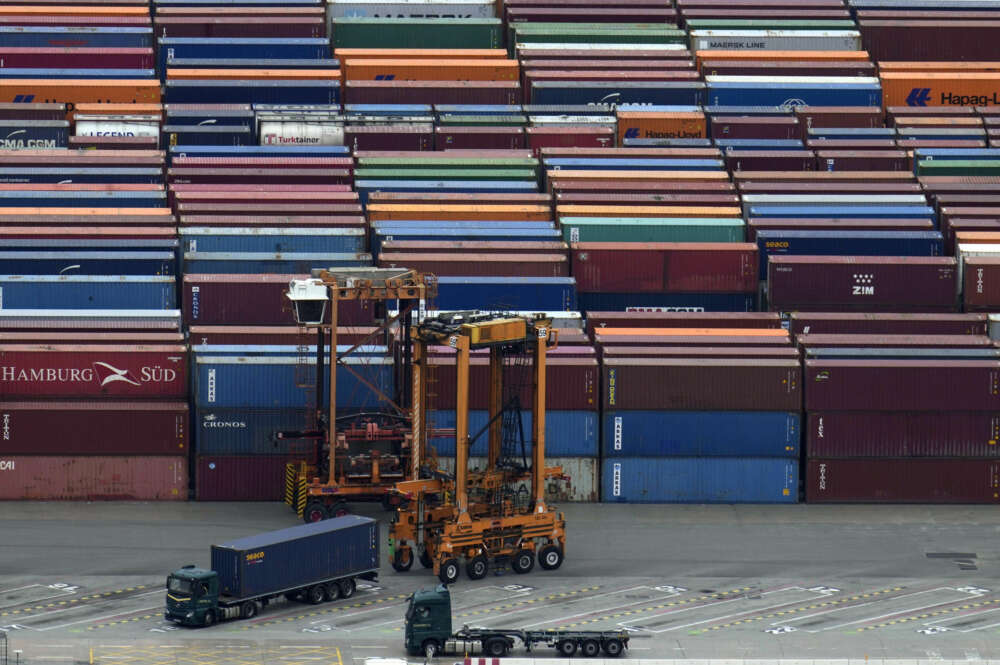Ten days after the start of the transporters’ strike, the situation in the main ports of Spain is already critical. The country’s large port infrastructures are already around 90% of their capacity and cannot distribute the merchandise that arrives due to the pickets that surround the facility for hours. Even in areas less affected by the strike, such as Barcelona, they are already considering not accepting new shipments in some terminals due to lack of space.
The first affected by the strike was the food industry, especially the dairy and fruit and vegetable sectors, which work with very short delivery times when using perishable products. Two weeks later, the impact is already widespread: from automotive to textile companies are hit by the lack of parts or materials necessary to maintain their activity. And in many cases, the missing elements do not arrive by road; They do it by sea. But there is also no way for them to reach the plants.
Read more: Catalan businessmen ask for measures “this afternoon” to stop the transporters’ strike
Pickets in the main Spanish port areas became a common sight. This Thursday, those responsible for the ports of Barcelona, Algeciras, Valencia and Bilbao agreed that the current situation is critical and joined the business offensive to ask the Government for solutions and to unblock negotiations with the transporters.
Although the strike hit hardest in the north and south of Spain, areas with fewer problems in the supply chain are also affected. Damià Calvet, president of the Port of Barcelona, warned in a meeting organized by Diario del Puerto that there are terminals that are “full of their capacity” and he is already working on scenarios in which activity will stop if it is not possible to discharge the terminals. containers that could not be unloaded.
In Algeciras, the situation is “limited and very delicate,” warned the president of the local port, Gerardo Landaluce. “The crisis is not only experienced in the ports, but throughout the country as it affects the entire logistics chain and the industrial belt,” he lamented.
The Barcelona Free Trade Zone has become a common place for truck drivers to gather over the last few days. Without going any further, approximately 350 container transporters protested this Thursday in the vicinity of the port, from where they left for the Government Subdelegation in Barcelona.
Read more: Transporters ask to increase the diesel bonus to 1,000 million euros
“The situation is very worrying,” said Calvet, who estimated current infrastructure activity at 20% of normal. There are even terminals that have already reached their maximum capacity and that no longer accept new merchandise until they can distribute what is there.
In Catalonia, unemployment affects food distribution less than in other regions. The scenes of empty shelves in supermarkets are less visible “thanks to the fact that a lot of local products are used in sectors such as dairy, for example,” explain sources in the sector. The latest figures made public by Mercabarna speak of an availability of fish of 85% of the usual and practically normality in fruit and vegetables.
Bilbao paralyzes road delivery
The blow is more severe in ports like Bilbao. At the same event, the president of infrastructure, Ricardo Barkala, admitted that pickets and the lack of truckers make it impossible to distribute containers by road. “Distribution through this channel is paralyzed,” he lamented. The solution was to use rail as an emergency method, although pre-strike capacity could not be matched.
The facility was blocked by pickets practically from the first day of the strike and only convoys escorted by the police can enter. Therefore, there are ships that will have to divert and look for alternative ports to unload the merchandise.
The reality is similar in Valencia. The Port Authority agrees in talking about “congestion” and suffers from problems similar to those of its counterparts: the impossibility of getting arriving products onto the road. In their case, the situation was also complicated due to heavy rains, which forced the suspension of maritime activity.


